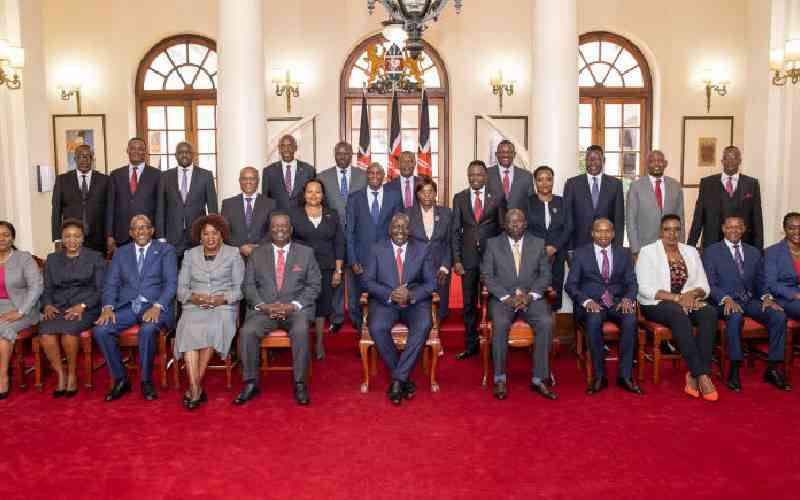×
The Standard e-Paper
Home To Bold Columnists

President William Ruto's Cabinet marks 100 days in office today since their swearing-in on October 27 last year.
The 24-member Cabinet, sworn in two months after President Ruto narrowly won a bitterly fought but largely peaceful election, has had some impact in aiding the Head of State implement his manifesto all the while navigating the murky political climate that has pitted the Raila Odinga-led Azimio coalition party against the Kenya Kwanza administration.







